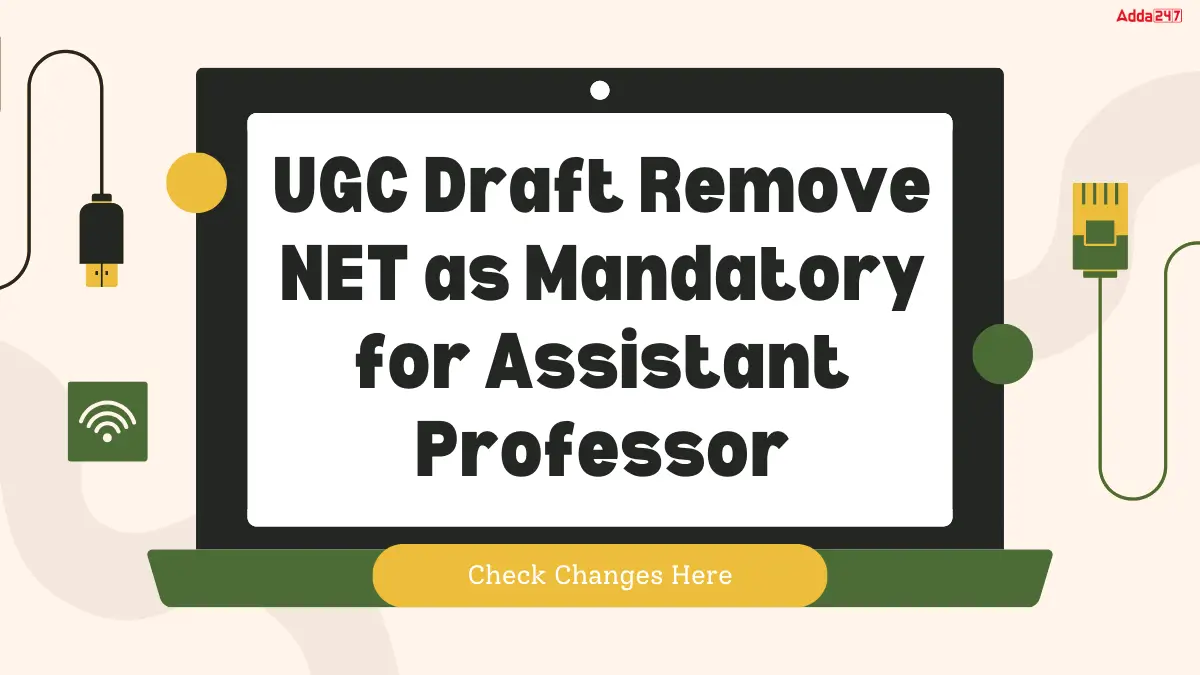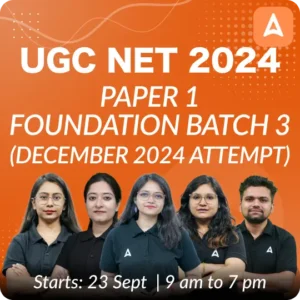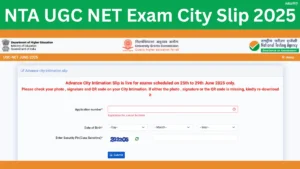Table of Contents
The University Grants Commission (UGC) released a draft of new regulations on 7th January 2025, which introduced significant changes affecting the eligibility of Assistant Professors, their promotions, and the appointment process for Vice-Chancellors. These updates are the first major changes in over five years and aim to make the recruitment process more flexible and inclusive. The new draft regulations provide greater opportunities for candidates, especially those from multidisciplinary backgrounds, allowing them to apply for various academic positions across different fields.
With these changes, the rigidity that previously existed in terms of qualifications and recruitment procedures is being replaced with a more flexible, open approach. However, there has been some confusion among candidates regarding the requirement of the National Eligibility Test (NET) for Assistant Professor positions. Candidates might be thinking that the new draft would eliminate the NET requirement, but that is not the case. In this article, we will clarify the important details of the draft, particularly regarding the NET requirement.
NET Requirement for Assistant Professor
The recent UGC draft has created some confusion about whether NET is required for Assistant Professor positions. Some people think that NET is no longer necessary, but that’s not completely true. The new draft has made some changes, but UGC NET is still required for most candidates.
If someone completed their PhD before 11th July 2009, they do not need to clear the NET exam to become an Assistant Professor. This is an important exception. Also, if a person has completed an M.Tech or M.E. degree, or if they have a Bachelor’s degree with 75% marks or a Master’s degree with at least 55% marks, along with a PhD, they don’t need to take NET either. However, if someone has only a Master’s degree and does not have a Ph.D., they will still need to clear the NET or a similar exam like SLET/SET. In simple terms, while the new draft has made some changes to make the process more flexible, the NET exam is still needed for most candidates unless they fall into one of the above categories.
| UGC Draft Regulation 2024 PDF | |
| UGC Draft Regulation 2024- Qualification | Check Here |
| UGC Draft Regulation 2024- Job Profile | Check Here |
Major Changes in UGC Draft
The UGC draft introduces several important changes to the recruitment and promotion processes for academic staff, aiming to create a more inclusive and transparent system for both candidates and higher education institutions. These changes focus on expanding eligibility, simplifying the recruitment process, and providing more opportunities for candidates from various backgrounds. Here are the key changes outlined in the draft:
- Candidates will now be eligible for Assistant Professor roles in the subject or discipline of their PhD, even if their undergraduate or postgraduate degrees were in a different subject. This flexibility allows individuals to apply for positions in their area of expertise, regardless of their academic background.
- NET qualifications will now be applicable to the discipline or subject in which a candidate has completed their PhD, allowing them to specialize in the field they have studied at the doctoral level.
- The draft emphasizes that a Ph.D. degree will remain mandatory for Assistant Professor recruitment. However, it provides flexibility by allowing candidates with a variety of qualifications, including a PG degree in technical fields like M.Tech or M.E., to apply for the position.
- The recruitment process for Vice-Chancellors will now include an all-India advertisement and public notification, ensuring a fair and transparent selection process that reaches a wide pool of qualified candidates.
- Assistant Professor promotions will no longer be solely based on the Academic Performance Indicator (API) scores. Instead, the focus will shift to the candidate’s contributions 9 sector, such as innovation in teaching, research, and involvement in community engagement, Teaching-Learning and Digital Content Creation for MOOCs etc.
Benefits of UGC Draft
The UGC draft regulations offer several benefits to candidates, making the recruitment and promotion processes more accessible and flexible. These changes aim to encourage a more diverse range of applicants and recognize a wider variety of academic contributions. Let’s explore the key benefits:
- Expanded Eligibility: The draft allows candidates to apply for Assistant Professor positions in the subject of their PhD, even if their undergraduate or postgraduate studies were in a different subject. This provides greater opportunities for candidates from diverse academic backgrounds, making it easier for them to enter the teaching profession.
- More Transparent Vice-Chancellor Selection: The new regulations ensure that Vice-Chancellor recruitment is conducted fairly and transparently through all-India advertisements and public notifications. This change ensures that qualified candidates from across the country have a chance to apply for the prestigious role of Vice-Chancellor.
- Holistic Approach to Promotions: Promotions for Assistant Professors will no longer be based solely on the API score but will also consider the individual’s contributions to teaching, research, and community service. This shift encourages more meaningful and impactful work in academia and recognizes the diverse ways in which teachers contribute to their institutions.
- Exemptions for Older Ph.D. Candidates: Candidates who completed their PhD before 11th July 2009 are exempt from the NET/SLET/SET requirements, which acknowledge their previous hard work and qualifications, ensuring they are not unfairly disadvantaged by newer requirements.
- Encouraging Multidisciplinary Collaboration: The draft encourages candidates to pursue interdisciplinary research and teaching, fostering a more collaborative academic environment. With the flexibility to apply for positions in subjects outside their initial academic background, candidates are more likely to engage in cross-disciplinary research and innovation.




 REET Mains परीक्षा के ...
REET Mains परीक्षा के ...
 UGC NET Exam City Intimation Slip 2025 O...
UGC NET Exam City Intimation Slip 2025 O...
 How can I Prepare for UGC NET Exam onlin...
How can I Prepare for UGC NET Exam onlin...












